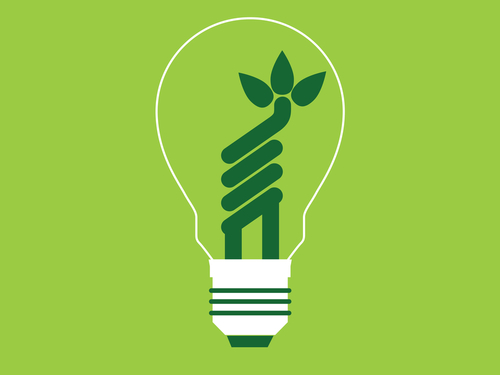Commercial, Energy Efficiency, GHG Emissions - July 24, 2024 - By Better Buildings, U.S. Department of Energy
City of Norfolk: Watts Going Down Energy Efficiency Campaign
To increase awareness of the City of Norfolk’s participation in the Better Buildings Challenge and to expand sustainability efforts, the City’s Environmental Sustainability Division created the Watts Going Down, Norfolk campaign. The campaign created an educational video series and an Energy Champions program, among other informational materials like light switch decals and flyers, to educate primary building users about ways to reduce energy use through simple habit changes, like turning off lights and electronics, maintaining seasonal temperatures on office thermostats, and switching to electronic documents rather than printing. Within six months of launch, the campaign engaged 87% of City staff and identified 72 Energy Champions across 26 unique departments and divisions.
POLICIES
In 2017, the Mayor of Norfolk, Virginia, signed the Global Covenant of Mayors for Climate and Energy. Subsequently, in 2019 the City of Norfolk staff and community stakeholders created a Climate Action Plan (CAP). A CAP directs citywide efforts to mitigate and adapt to a changing climate by reducing the energy usage of municipal buildings, among many other strategies.
In 2022, Norfolk City Council adopted a resolution around the commitment to reduce energy consumption by 20% as part of the Better Buildings Challenge. Using that goal as a framework, the Environmental Sustainability Division onboarded an energy project coordinator and data analyst to measure and track progress.
PROCESS
To catalyze efforts toward the City’s energy efficiency and decarbonization goals, the Environmental Sustainability Division first obtained grant funding from the Southeast Energy Efficiency Alliance. Upon successful acquisition, the Environmental Sustainability Division leveraged the funding to create the Watts Going Down, Norfolk campaign.
The team began developing campaign materials and an organizational structure, identifying short videos as a key method to disseminate information to staff. A unique video was created for each energy savings measure that staff were asked to take. Video topics include:
• Maintaining seasonal temperatures on office thermostats,
• Setting printers to automatically power down,
• Switching to electronic documents,
• Using a laptop instead of a desktop, and
• Ensuring exterior doors are closed completely.
These videos were published on the program’s webpage.
Additionally, staff developed flyers, light switch decals, and giveaways to encourage participation. The Environmental Sustainability team sourced materials from recycled content and purchased new items from women- or minority-owned businesses, when possible. This was very well received by staff.
After the campaign materials were procured, the Environmental Sustainability team conducted in-person outreach to garner Energy Champions across departments. Using the City’s daily email blast to all employees, word spread quickly about the program. After filling out an online sign-up form, the Environmental Sustainability team scheduled a meet-and-greet and delivered the Energy Champion’s Starter Kit. The Starter Kit included items to maintain personal preferred temperature like a blanket and rechargeable desk fan, water bottle, t-shirt, flyers, magnets and posters. These individuals were instrumental in spreading the campaign message to other staff members in their respective departments.
Energy Treasure Hunts were also an important component of the campaign. The Treasure Hunts offered a streamlined energy assessment, focusing on the ten most common sources of energy loss. Each source is evaluated on a one-to-five-star scale, contributing to a final energy score that reflects the average rating. By establishing this baseline, the City will be able to implement targeted improvements over time, working towards enhancing energy efficiency and supporting the Watts Going Down, Norfolk goals.
The road to launch the Watts Going Down, Norfolk campaign was not always straight forward. It took strong communication, patience, and perseverance to connect with the necessary departments and staff for approvals and buy-in. It was important to approach each campaign meeting with an understanding attitude. The team also found it helpful to leverage the framework of the Better Buildings Challenge. The team was flexible on the timeline of the project but committed to launching at a time when the majority of staff are in the office.
OUTREACH
In the six months following the launch of the Watts Going Down, Norfolk campaign, the Environmental Sustainability Division conducted over 25 unique outreach events. These included in-person meet-and-greets, energy treasure hunts, departmental presentations, lunch and learns, and internal tabling events.
In addition to exchanging information face-to-face and disseminating printed materials, the City published videos on its internal webpage that highlighted “power moves” to reduce energy consumption, such as knowing your thermoSTATS, setting automatic power-downs, switching to electronic documents, using a laptop instead of a desktop, and fully closing exterior doors.
MEASURING SUCCESS
The City of Norfolk measured the success of this program by City staff that engaged and participated through video viewing, in-person tabling, number of Energy Champions and Energy Treasure Hunts. Norfolk is tracking energy use at all buildings and will have a fuller picture of the reduction once the program has been active longer.
OUTCOMES
Within six months of the program’s start, there were 72 Energy Champions across 26 unique departments and divisions. The City also completed 11 energy treasure hunts to establish baseline data in 10 categories. Additionally, the videos published under this program received viewership by approximately 87% of City staff.
TOOLS
 The Better Buildings Solution Center houses over 3,000 resources shared by Better Buildings partners and other stakeholders. These replicable solutions help organizations bolster their bottom line, advance technology innovation, create jobs, and spur energy efficiency investments.
The Better Buildings Solution Center houses over 3,000 resources shared by Better Buildings partners and other stakeholders. These replicable solutions help organizations bolster their bottom line, advance technology innovation, create jobs, and spur energy efficiency investments.
Share this valuable information with your colleagues using the buttons below:
« Back to ColumnsStay Up-To-Date












